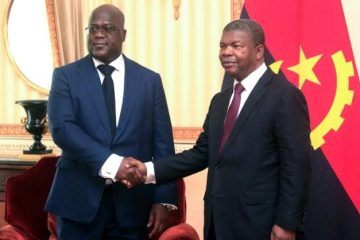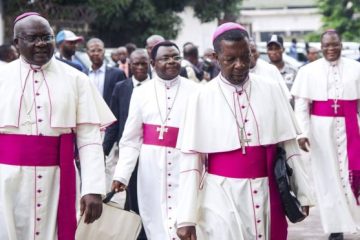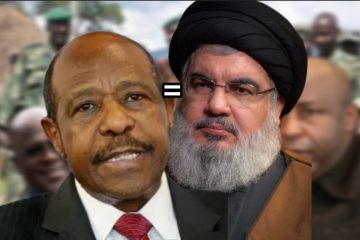Today life in Rwanda has proven to be so complex, dynamic and most of the time very overwhelming. The stress associated with our lives’ responsibilities and obligations may not let us even evaluate our achievements. In other words, many times, craziness of the status of things in our lives do not allow us to put enough thought into the question of “are we satisfied with our life?”
My view of population satisfaction refers generally to the way people evaluate their life, taking into account the progressive steps they have made in their life and their hope and expectations about their future. In other words, population satisfaction is a set of achievements towards a self sustained level of life within the context of a country (Rwanda) moving towards a middle income economy status.
In this line of this thinking, some among the important indicators of population satisfaction include safety, security and order, income, jobs, education, health, gender equality, health social security, environment, protections of special groups, integration and acceptability to the world, etc.
Of course countries with good policies always excel in terms of population satisfaction. This definitely insinuates that leadership is an important variable to population satisfaction. The intention of my today’s piece is to reflect on leadership as an essential condition to population satisfaction, secondarily, I wish to show how both factors (leadership and population satisfaction) greatly contribute to good social progress and political continuity of countries; Rwanda being the case in point.
Every country in the world has a unique history. Good or bad, in the era we are in today, no leader or a people have enough justifications of why his/her country may be at backward level of development. Despite the consequence of 1994 Genocide that killed one million Tutsi in 100 days in face of the international community, Rwanda has tried to stand tall to work towards it peoples’ satisfaction.
After the Genocide, Rwanda was not only in need for resuscitation but also for a complete paradigm shift in all domains. These couldn’t be achieved without a leadership, a leadership couldn’t lead without a united people, unity couldn’t be achieved in total insecurity, security couldn’t be achieved with a genocidal government on the soil of neighboring state, etc.
To surmount those problems, Rwanda simply needed a leader, not an ordinary leader but a “servant leader” whose only desire is to serve his people to surmount problems, stabilize, prosper and reach greater heights in the future. Rwanda found one, President Paul Kagame, the then second command in the post genocide immediate Government.

President Paul Kagame participating in activities during Umuganda week.
After stopping the Genocide, everything was urgent, but security and defense were a prerequisite. However, the work that was involved to achieve them was unimaginable as it required expanding the protection of our people and their properties beyond the boundaries of Rwanda to confront groups of enemies that were ever determined than before to come back and finalize the Genocide.
Worse, they were supported by a Government (Zairean) which had hosted a genocidal government (Rwandese) with its entire machinery, which had also been benefiting significant support from a good number of players in the international community.
Simply, nobody was seeing the life continuing with such huge threat to Rwanda. But, as put in Kinyarwanda “where there are heroes, the rest of men do not die” – ahari abagabo ntihapfa abandi. This problem was a burden of every patriotic Rwandese but some made it their own burden in a special way. The servant leader, President Kagame, decided to confront it to end it, not only for the good of all the Rwandese but also for the common good of the entire Great Lakes Region due to insecurity the problem was expanding to it.
After trying all other peaceful means, the last resort modus operandi came to be nothing else than a military campaign. It took the servant leader twenty four months after the Genocide to start confronting the evil.
One morning, we saw the campaign starting, hitting first of all the strongest group (the Zairean Government forces), secondarily disarmed Exfar and interahamwe which represented the most hostile enemies, thirdly, separated innocent civilians with fighters and repatriated them in Rwanda to form a part of the productive citizens of the society.
FDLR, RDR, FOCA and other negative forces were dismantled. After that campaign, I remember, with deep breath, every citizen in Rwanda and in the Diaspora said ‘we shall not die any more, the servant leader has made it”. This time was the beginning of times of hope, peace and a journey towards population satisfaction.
Yes hope and peace are an important resource in human life but hope is good hope when it is sustained by practical actions. In 2000, the service leader declared Rwanda’s shift from emergency to a path of development and growth. Of course, this was the wish of everyone but some sectors were still subject to emergency treatment and consideration.
Of course, the servant leader also understood that population satisfaction goes hand in hand with social security revolution through national effort. Rwanda has made significant progress in terms of social insurance, services and other basic security.
For example, Rwanda has improved the health sector situation of Rwandans by strengthening the quality of service delivered and providing access to treatment through universal health insurance coverage (Mutuelles de Santé), promoted quality affordable and sustainable health care services through innovative and evidence based interventions and practices. This was also complimented by the Government of Rwanda’s medical institutional infrastructure, laboratory network, etc.
Health is good when it is supported by wealth. The servant leader tirelessly worked to improve conditions of employment in both public and private sector through the implementation of policies and strategies that promote youth and women development with the aim of reaching at reasonable economic and social transformation status.
Bearing in mind that there is a good number of Rwandans earning their living through agricultural sector, Rwanda has reactivated the agricultural components of the economy. For efficiency, all services from Rwanda Coffee Development Authority (OCIR CAFÉ), Rwanda Tea Development Authority (OCIR THE) and Rwanda Horticulture Development Authority (RHODA), etc now serve together to improve the socioeconomic status of Rwandans.

President Paul Kagame visiting the people of Nyanza District to check on their development activities.
Of course agriculture cannot produce results without funding, under the guidance of the servant leader, the Rwanda Development Bank finances a number of development projects and agricultural projects are always a priority for financing.
All these efforts flourish on the basis of polices that cater for a sustainable growth, that favor economic opportunities and living standards of all Rwandans, that care for the highest standards of accountability and transparency in public finance management and that maintain a stable and competitive financial system without any exclusion.
In any political system, macroeconomic perspective is always important but individuals’ life matters most. The government of Rwanda initiated the national saving policy to help the ordinary citizen to help themselves and grow socially and economically. Saving and Credit schemes were initiated with the support and subside from the national treasury. 491 SACCO and microfinance institutions are up and running with deposits of around Rwf 90 billion today.
These schemes improved the money supply and demand of money on the villages’ residents’ level, thus, improving the socioeconomic status of many down there.
Rwandans know that this success could not have been achieved without the support of their leadership who created a conducive environment for them to use those schemes, make more from little and earn a living.
Today Rwanda has also established the unit trust sector whereby even an ordinary citizens will be able to invest from 2000 Rfw, and huge funds in the form of mutual funds will be created and will benefit not only the institutional and retail investors but also the country as the fund will greatly help in terms of domestic borrowing.
Certainly, all these efforts were accompanied with the improvement and modernization of the education sector. Rwanda ranks among the best countries that made fundamental change and progress in the area of education and literacy.
Isn’t it a good story to hear that Rwanda literacy rate for 15-24 year olds stood at around 90? Isn’t it good progress to hear that literacy rate is even likely to increase as higher proportion of young people have enrolled to primary and secondary schools and that school dropout is at almost 1 %?

President Paul Kagame on of the visits he makes country side to listen to the needs of people.
Households, countrywide, get rewarded for any little efforts made to keep their children to school: From primary school, any intelligent pupil will get a seat in any good public secondary and those whose performance was not outstanding will enroll to the nine years basic education program.
But, can any development agenda succeed when more than a half of its population is not politically and economically empowered?
In Rwanda, gender equality was enshrined in the constitution and different reports have ranked Rwanda among the top first countries in the world to have more than 50 per cent female members of parliament and at least more than 30% in other institutions like the cabinet, judiciary and local government, etc.
Aware that any empowerment made to a woman brings light to the entire family, those who benefited from gender equality and women positive discrimination policy still wish to keep the momentum with their leader who changed their lives and safeguarded their interests.
Of course, throughout the walks of resilience, Rwanda understands that its people could not grow in the darkness.
The Government of Rwanda decided to roll out electricity to lights up lives and boost households’ living standards by providing 70 percent of Rwandan households with electricity access by 2017, with schools, hospitals and businesses being the primary beneficiaries and the households the ultimate targets.
While the citizens of Rwanda are proud of what they have achieved, they have also set the bar high into the future. The citizens are aware about the outstanding plans and projects they know they would be so beneficial to them and cannot be handled by everybody. They believe abled servant leaders are fit to handle such massive projects.
I am talking about the projects like Bugesera International Airport, the railway line project under the Northern Corridor Integration Projects, transmission of 30 MW of electricity from Kenya to Rwanda through Uganda, etc.
The people of Rwanda know the role of their servant leader to initiate and implement these projects, in so, they are satisfied, that’s why their hope for the future with him, are still deep and high.
To sum up, let us ask ourselves a question. What is the worldview of Rwandans about the events that happened around them in the last 22 years? A worldview is a people’s framework of ideas and attitudes about the world, themselves and their life, etc, that make a set of their comprehensive system of beliefs.
In Rwanda, events that happened to its people left a message of satisfaction not because the country’s GDP is as good as the one of the US, but simply because the service leader, President Paul Kagame, kept a momentum in uplifting his people from the worse to good and better, expectedly from the better to the best in the future.
“We have witnessed a natural feeling into President Kagame, to serve first. The care he takes to serve first makes him make sure that Rwandan people are a high priority to be served first. We have seen, realized it”. Emmanuel
Article by:Emmanuel, Nyarugunga, Kicukiro, Kigali City.
END






